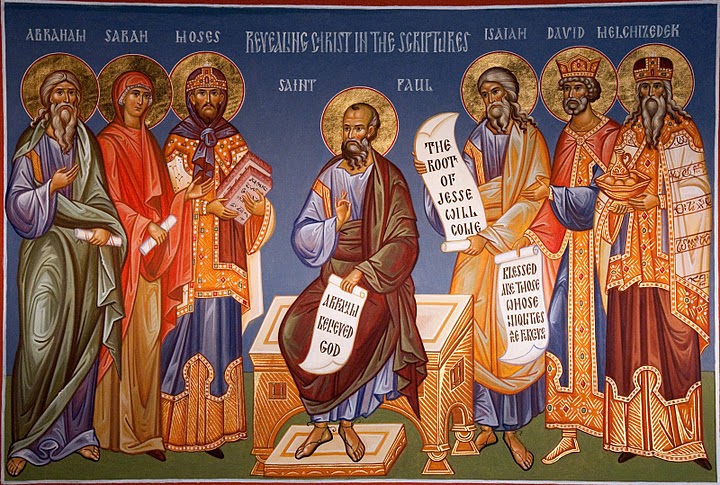The world we inhabit is laden with the vestiges of diverse belief systems, many of which are steeped in rich historical narratives. Throughout human history, prophets have emerged as central figures, often appearing in environments marred by moral decay and societal upheaval. This intriguing phenomenon invites a playful inquiry: why do these transcendent beings—imbued with divine insight—manifest in corrupt cultures? Furthermore, what does the Baha’i perspective illuminate about this historical occurrence? This examination will delve into the nuanced interplay between prophetic figures and the sociocultural landscapes in which they arise, framed through the lens of Baha’i teachings.
To begin, one must acknowledge the Baha’i tenet that prophets are not merely historical figures but rather manifestations of God, serving as intermediaries between the Divine and humanity. They bring forth divine revelation at critical junctures in human history, often when society stands at a crossroads. The Baha’i Faith posits that this divine intervention is crucial for guiding humanity toward unity and progress, particularly when socio-ethical norms have disintegrated.
Examining the historical context of prophetic appearances reveals a pattern—prophets frequently emerge during epochs characterized by moral decline. One might ponder: what compels divine intervention precisely when human beings seem most distant from their spiritual origins? The Baha’i perspective asserts that the necessity for guidance peaks when ignorance and division reign supreme. Corrupt cultures often yield a distressing disjunction between moral values and human conduct. Consequently, divine messengers appear as harbingers of justice, compassion, and enlightenment.
The stark realities of these disordered times elicit profound questions about the nature of divine timing. How do prophets harbor the capacity to transcend societal corruption and instill a sense of hope? Baha’u’llah, the founder of the Baha’i Faith, elucidates that prophets are bestowed with unique attributes that enable them to embody the ideals they advocate. They reflect unmatched virtue, wisdom, and resilience—qualities indispensable for effecting transformative change in a skeptical world.
Moreover, the Baha’i teachings assert that the core messages delivered by prophets tend to evoke universal principles of equity and justice. Despite the peculiarities of their cultural contexts, the edicts issued by these figures often resonate across geographical and temporal divides. For instance, the teachings of Jesus, Muhammad, Moses, and Baha’u’llah, although embedded within their respective cultural frameworks, ultimately underscore the need for love, unity, and understanding among all people. This universality raises an essential consideration: do prophets serve as cultural critiques, exposing societal flaws while simultaneously prescribing redemption through divine love?
Such assertions inevitably prompt further inquiry regarding the role of societal context in shaping prophetic messages. To what extent do local customs and prevalent ideologies influence the revelations imparted by prophets? The Baha’i view proposes a dynamic interaction between the messenger and the milieu within which they operate. While the revelations remain constant in their divine essence, the methods of delivery often adapt to meet the questions and expectations of contemporaneous audiences.
Consider the role of language. Prophets employ the vernacular of their time to communicate profound truths, ensuring that the messages resonate deeply with their contemporaries. This linguistic adaptability serves to reinforce the idea that, despite emerging in “corrupt cultures,” the truth remains invariant; it is the contextual delivery that shifts. Moreover, the historical circumstances surrounding a prophet’s life can offer insights into the challenges and struggles faced by humanity, thus enriching the broader tapestry of human experience.
Yet, the question remains: how can individuals today glean wisdom from the lives and teachings of these prophets, especially when confronted with contemporary cultural challenges? The Baha’i Faith encourages adherents to engage with prophetic teachings as living legacies, capable of informing moral and ethical conduct in modern society. Each epoch demands a fresh interpretation of timeless truths, urging believers to grapple with complex realities while nurturing intrinsic spiritual values.
Furthermore, acknowledging the proclivity for corruption in cultures poses a critical challenge to the modern believer. How does one navigate a world riddled with discord while remaining faithful to the core principles espoused by prophetic figures? This inquiry activates a profound commitment to collective learning, informed discourse, and the pursuit of justice. Each Baha’i community member is called to act responsibly, fostering unity in the face of division.
The convergence of prophetic teachings and societal corruption encapsulates a rich narrative of hope, perseverance, and divine love. Through the lens of the Baha’i Faith, one discerns a profound appreciation for the historical trajectory of humanity. Prophets, by defying the constraints of their tumultuous environments, illuminate pathways toward a more cohesive and equitable future. Their teachings serve not merely as historical artifacts but as dynamic guides that challenge each individual to rise above societal malaise—a call to action resonating with heartfelt fervor across generations.
In conclusion, the Baha’i perspective illuminates the intricate tapestry of prophecy and culture, compelling adherents and seekers alike to engage deeply with the legacies left behind. Ultimately, the prophets serve as symbolically potent beacons in times of crisis, instilling hope, inspiring transformation, and advocating eternal truths that transcend the limitations of their eras. It is this intersection of divine revelation and human experience that enlivens our understanding of history, urging us toward a future marked by unity and justice.
